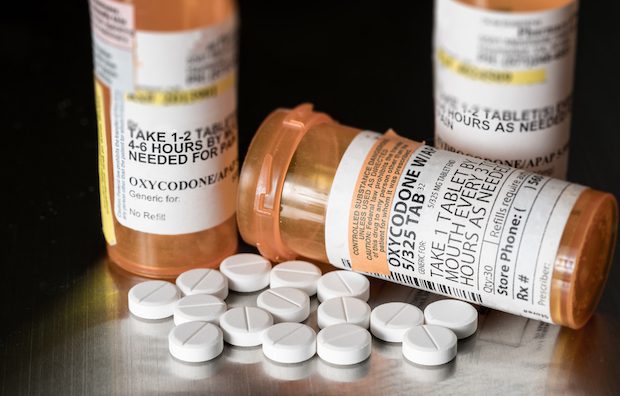Defending Opioids

When I read an article that I think I might like to comment on, I’ll keep a tab open on my browser. Sometimes it sits open for months. If the moment passes, I’ll close the tab eventually, but sometimes, the moment comes back around.
So it has today. A few hours ago, I bent over to pick up a box, and felt a shot of electric current race like lightning across my lower back. I’ve been in bed, with an ice pack, since then. This happens every few months or so, and man, is it ever painful and frustrating to deal with. People who don’t have to deal with disabling pain really can’t imagine what it’s like. I know I couldn’t have until I started having recurring back problems a few years ago. Gotta be honest with y’all: if the Oxycontin Truck drove down my block this afternoon, I’d send the kids outside with a fistful of dollars to bring their broke-down old pop some pain relief.
Which brings me to Ronald Reagan Presidential Foundation director John Heubusch’s March 27 op-ed in the Washington Post. Heubusch received a terminal cancer diagnosis five years ago, but managed to dodge the bullet. He’s not sure that was for the best. Excerpt:
Victims of tragic accidents, disease onset, combat wounds, complicated surgeries, workplace injuries, gun violence or even a simple fall off a ladder are among the 20 million Americans like me who experience some form of high-impact, chronic and often debilitating pain. Many, given a second chance at life after a serious illness or injury, tragically choose suicide over pain. Why? The most unfortunate among them, those with life-altering, unspeakable pain, are being denied access to the medications they need to go on. Their doctors, now numbering nearly 70 percent of our front-line physicians, have enlisted in the nation’s war on opioids. Many have turned away from their patients in chronic pain.
When you see news stories declaring that federal action is driving fewer questionable opioid prescriptions, that Purdue Pharma is in deep trouble for allegedly creating millions of OxyContin addicts, and that the United States has stepped up the fight to interdict drugs on our nation’s borders, no doubt there’s reason to applaud. Lives are being saved. The rising number of deaths since 2015 that necessitated this war on opioids is most often not the fault of doctors or their patients in chronic pain. The real blame — where the war will be won or lost — lies with the illegal trafficking of opioids on the street where you live.
People who are not addicts, and who are dealing with serious chronic pain, are being made to suffer for the sins of drug dealers and people who want to take pills for pleasure. Heubusch goes on:
We have reached the point where doctors believe the next prescription they write for opioids to treat chronic pain might be their last. In my own case, I’ve had to undergo countless unsuccessful procedures and near superhuman efforts to be granted barely enough medication to try to live a normal life. Even those doctors with the courage to prescribe them for chronic pain sufferers are finding the hurdles established by federal and state reporting requirements so onerous that they are simply turning patients away.
This, I hasten to say, is not me. I do have chronic pain in my neck from a car accident, but it’s manageable. This misery with my back will pass after a week or so, and it too is manageable. Being suddenly sidelined and bedridden with acute back pain did remind me, though, of people like Heubusch who are suffering much worse, with no prospect for relief. It is completely understandable why lawmakers would be reacting so strongly to the opioid crisis, but surely it is immoral to put men and women like John Heubusch through this agony.
Four years ago, I tore the lining of a disk in my lower back while in therapy for ordinary back pain. The pain was so severe that I literally could not move from the sports medicine doctor’s table. Nothing I had ever experienced was like that. I would have confessed to anything to make the pain stop. If a doctor had told me the only way to make it stop was to allow him to inject heroin, I would have begged for the needle. Eventually they were able to carry me to a nearby physician’s office, and he gave me an injection in my lower back that stopped the pain. The recovery was not short, but the meds the doctor prescribed made it all bearable. If I had to live every day with the intense pain like I experienced when the disk lining tore, without prospect of relief, I don’t know how much of that I could bear without losing my mind, or my will to live. Seriously, until that moment — which has not, thank God, been repeated — severe pain was something I could only theorize. It was a lifting of the veil, and I’ve never forgotten it.
You won’t either, if it happens to you — and you’ll understand why folks like John Heubusch need mercy.